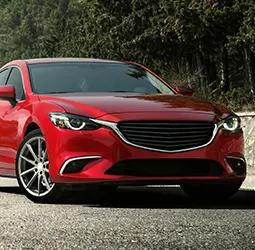Car insurance is an essential aspect of driver protection on the road. However, there is a growing tendency to opt for minimal coverage, often due to financial constraints or the perception of low risk.
When Disaster Strikes: Minimal Coverage and Major Accidents
Complete car protection is essential in today's unpredictable world. When disaster strikes, minimal coverage can leave you vulnerable to major accidents and their financial implications. While minimal coverage may seem like a cost-effective option, it may not provide the necessary protection for you and your vehicle in case of a serious accident. It's crucial to understand the potential risks and consequences before settling for minimal auto coverage.
The Financial Implication: Understanding The High Deductibles
One of the hidden costs of minimal coverage is the high deductibles. In the event of an accident, you will be responsible for covering a significant portion of the repair costs out of pocket. With minimal coverage, these deductibles can be exorbitantly high, placing a heavy financial burden on you. By opting for more comprehensive coverage, you can reduce the financial implications of deductibles and ensure that you are adequately protected.
The Hidden Cost: Long-Term Financial Impact of Minimal Coverage
Minimal auto coverage may save you money in the short term, but it can have long-term financial repercussions. In the event of a major accident, the costs of repairs, medical bills, and legal fees can quickly add up. Without sufficient coverage, you may find yourself in a precarious financial situation that can take years to recover from. It's important to consider the potential long-term financial impact before opting for minimal auto coverage.
Considering the Alternatives: Options Beyond Minimal Coverage
Fortunately, there are alternatives to minimal coverage that provide more comprehensive protection without breaking the bank. By exploring different insurance plans and comparing their coverage options, you can find a policy that suits your needs and budget. It's important to consider factors such as liability coverage, collision coverage, and comprehensive coverage to ensure complete car protection in various scenarios.
Making the Smart Choice: Evaluating Your Auto Coverage Needs
When choosing your auto coverage, it's essential to assess your specific needs and circumstances. Start by evaluating the actual value of your vehicle. Consider factors such as age, mileage, and market value. This assessment will help you determine the appropriate coverage level for your vehicle.
Assessing the Actual Value of Your Vehicle
One of the key factors in determining your coverage needs is assessing the actual value of your vehicle. By considering the age, mileage, and overall condition of your car, you can determine its current market value. This evaluation will provide a baseline for selecting the appropriate coverage level.
Estimating the Potential Repair Costs for Major Damages
In addition to assessing the value of your vehicle, it's crucial to estimate the potential repair costs for major damages. Contact the claim center to get accurate repair estimates for different scenarios. This information will help you make an informed decision about the level of coverage you need.
Factoring in Personal Risk Factors and Driving Habits
Personal risk factors and driving habits also play a significant role in determining your auto coverage needs. Consider factors such as your driving history, the frequency of your commute, and the likelihood of accidents in your area. By factoring in these variables, you can choose a coverage level that provides adequate protection for your specific circumstances.
Considering Total Financial Responsibility in Case of Major Accident
Finally, it's important to consider the total financial responsibility in case of a major accident. Minimal coverage may leave you exposed to significant costs that can have a lasting impact on your financial well-being. By opting for more comprehensive coverage, you can ensure that you are protected against the financial repercussions of a major accident.
Minimal auto coverage may seem appealing due to its lower cost, but it can leave you vulnerable to major accidents and their financial implications. By understanding the hidden costs, long-term financial impact, and considering alternatives, you can make an informed decision about your auto coverage needs. Assessing the value of your vehicle, estimating potential repair costs, factoring in personal risk factors, and considering total financial responsibility are crucial steps in making the smart choice for complete car protection.
